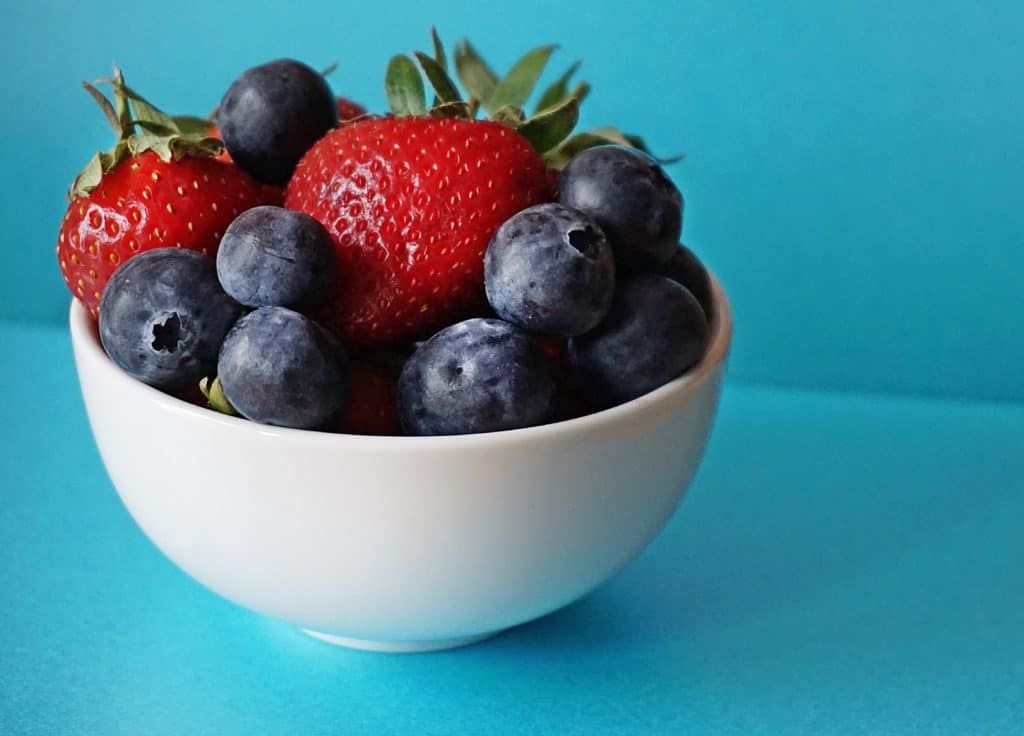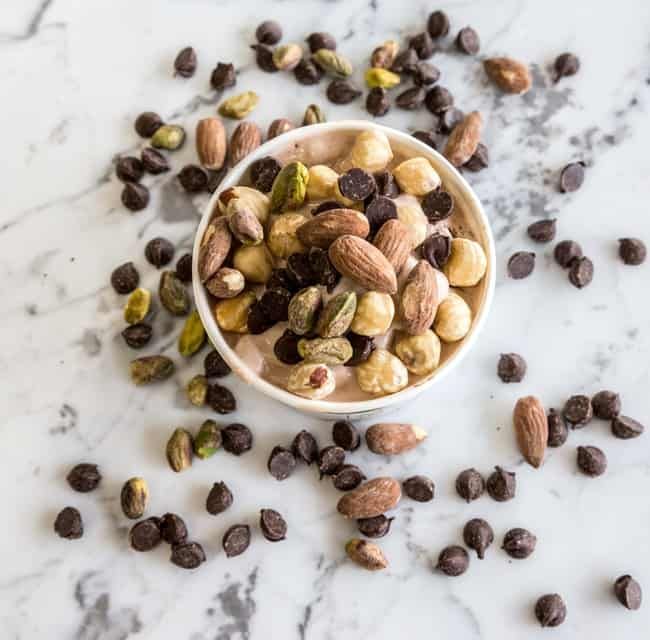Hippocrates once rightly quoted "Let food be thy medicine." Following a balanced diet and a healthy lifestyle is the primary way to prevent many types of diseases. On an average, healthy individuals are better equipped to survive contagious diseases, like influenza, common cold, and even the novel COVID-19. Interested to learn more to help boost your immunity? Make these changes to your diet and lifestyle.
Immunity, in an organism, is having the natural bodily defenses to be able to fight off an infection, disease, or any other biological invasion. Humans have innate and passive immunity. Innate immunity is the primary response in the body, and this is when immune system cells attack any foreign substance within the body. On the other hand, adaptive immunity takes a longer time; however, it is much more specific than an innate immune response. This is when the body produces proteins called antibodies, that bind specifically to a foreign substance. Once antibodies are produced, the immune system can bind to the proteins of the foreign entity (antigen) and quickly initiate an immune response. This is the basics of how a vaccine works as well.
Like in the case of COVID-19, where there's no vaccination for it as of yet, the best alternative is to equip the body's immune system with certain vitamins and minerals. It is important to note that, currently, no study claims that supplements can cure COVID-19; however, many articles do suggest that a balanced diet consisting of all vitamins and minerals can help bolster the immune system.
Immunity boosting foods

Berries are a great source of antioxidants and vitamin C. Both of these can help boost the immune system. 
Nuts are also packed with several minerals and vitamins. Minerals like selenium and zinc help the immune system fight off illnesses. 
Yogurt, with live and active cultures, helps in stimulating the gut microbiome and the immune system in fighting off illnesses. 
Green tea is known for its antioxidant properties. Green tea contains a compound known as epigallocatechin gallate (ECGC), which has been shown to strengthen the immune system. 
Chicken soup isn't just a placebo effect; chicken and poultry in general, is rich in vitamin B6. This has a big role in immunity, as well as in the production of new red blood cells. 
Shellfish like crab, clams, lobsters, and mussels contain high amounts of zinc. This boosts the immune system greatly.
Vitamins to boost immunity
Vitamin C
This is an essential vitamin, and therefore, the body cannot produce it on its own. It is found in many fruits like kiwi, strawberry, broccoli, spinach, etc. Regular supplements with this vitamin have been shown to reduce the duration of a cold by 8% in adults and 14% of children. Additionally, regular supplementation reduces the occurrence of colds by up to 50% in soldiers and marathon runners, found the same study.
- How does it help? The intake of this vitamin can help in strengthening the immune system because it is a strong anti-oxidant that helps in managing high blood pressure, preventing heart diseases, and evading iron deficiency.
- Vitamin C is found in fruits like oranges, lemons, anything in the citrus family, broccoli, spinach, and kale.
- What are the genes involved?
- SLC23A1 is involved in producing a protein that helps in the regulations and distribution of vitamin C throughout the cells in the body. Mutations in the gene have been associated with skeletal demineralization, recurrent kidney stones, and hypercalcemia.
Know more: Know Your Genes: SLC23A1 “Vitamin C Gene”
Vitamin D
Most people are found to be deficient in this particular vitamin, which may negatively affect immune function. Research suggests that its deficiency may increase the chances of upper respiratory illnesses, like influenza and asthma.
- How does it help? Vitamin D is expressed in all immune cells and can help modulate both the innate and adaptive immune responses. Its deficiency could, therefore, suggest an increased susceptibility to infection and autoimmune responses.
- Fatty fish, orange juice, soya milk, beef liver are some sources of vitamin D.
- What are the genes involved?
- CYP27B1 is a gene that codes for an enzyme called 1-alpha-hydrolase. This enzyme helps in converting vitamin D into its active form, calcitriol (1,25-dihydroxyvitamin D3). Mutations in this gene have been found to cause vitamin D- dependent rickets type 1A. This is a disorder that is characterized by the disorder of bone development. Some studies also suggest that vitamin D deficiency can contribute to Autoimmune Addison disease, wherein the body attacks its adrenal gland.
- CYP2R1 also encodes an enzyme that falls under the P450 superfamily of enzymes. This enzyme is essential for the production of steroids, cholesterol, and other lipids. It also converts vitamin D into the active ligand for the vitamin D receptor. Mutation in this gene shows association with selective 25-hydroxyvitamin D deficiency.
- The VDR gene provides instructions for making a protein called vitamin D receptor (VDR), which allows the body to respond to vitamin D. Some changes in the VDR gene lead to an abnormally short version of the VDR protein. Others result in the production of an abnormal receptor. Both cases can contribute to the deficiency of vitamin D.
Know more: Are You Meeting Your Vitamin D Needs? Let Us Ask Your VDR Gene!
Vitamin B6
Also known as pyridoxine, is an important vitamin for several functions. It is important for protein, fat, carbohydrate metabolism, and the creation of red blood cells and neurotransmitters. Above all, the benefits of this vitamin range from the prevention of cancer, to boosting eye health.
- How does it work? Firstly, studies suggest that vitamin B6 is crucial for both innate and adaptive immune responses. Secondly, inadequate levels of this vitamin can affect the differentiation and maturation of lymphocytes (the body's main immune cell). Additionally, there can be a delay in antibody production as well.
- Pork, poultry, fish, bread, eggs, vegetables, and soya beans are some sources of vitamin B6
- What are the genes involved?
- NBPF3 is a protein-coding gene. It is present several positions upstream of ALPL, which is another gene that is with a high association with vitamin B6 levels. Mutations in these genes can heavily affect cognitive processes.
Know more: Did You Meet Your Vitamin B6 Needs Today? Your ALPL Gene Can Tell!
Vitamin E
This is a fat-soluble nutrient. A study that analyzed more than 2,000 people who were regular smokers, and exercised regularly; upon vitamin E supplementation, the study witnessed a reduced risk of pneumonia by 69%.
- How does it work? It mostly acts as an antioxidant and helps in protecting the cells from the damage caused by free radicals. This vitamin E also boosts the immune system and helps in widening blood vessels, preventing clotting.
- Vegetable oils, nuts, seeds, green leafy vegetables, and fortified breakfast cereals are some sources of vitamin E.
- What are the genes involved?
- CD36 regulates alpha-tocopherol concentrations in the body. Alpha-tocopherol is a type of Vitamin E. Mutations found within this gene showed association with the change in concentrations of alpha-tocopherol; in conclusion, there is an involvement of this gene in the uptake of vitamin E in the body.
- The TTPA gene provides instructions for making the α-tocopherol transfer protein (αTTP). This protein controls the distribution of vitamin E obtained from the diet (also called α-tocopherol) to cells and tissues throughout the body. Some mutations in this gene can cause changes in the amino acids that make up the αTTP protein, reducing its function. As a result, the body cannot retain or use dietary vitamin E, which leads to reduced levels of this vitamin in the blood.
Know more: Know Your Genes: TTPA “Vitamin E Gene”
Minerals that help boost immunity
Zinc
Zinc is now a common additive to all vitamin supplements and lozenges because of its crucial role in immunity. The mineral helps in immune cell development and communication; it also plays a role in inflammatory responses. Therefore, a deficiency in this mineral could lead to susceptibility to pneumonia. Supplementation of zinc could also decrease the duration of the common cold by up to a third.
- Meat, shellfish, legumes, seeds, nuts, dairy are some options for zinc sources.
- MT2A encodes metal-binding proteins that bind to essential metals, assisting with their transportation and extraction. A study analyzed the polymorphisms of a particular region of this gene for its effect on levels of zinc, cadmium, lead, and copper levels. Individuals with a GG genotype had lower zinc levels than the other genotypes. Therefore, individuals with GG may be more sensitive to metal toxicity.
Iron
Iron is essential for cell duplication and maturation, particularly in lymphocytes. The system also uses iron as an intermediary, when fighting off bacterial infections.
- Iron-rich foods include legumes, firm tofu, tempeh, pumpkin seeds, nuts, dried apricots.
- SLC17A1 is a protein-coding gene; SNPs in this gene show an association with ferritin levels in the body. In other words, certain mutations within this gene can affect serological iron levels.
Exercising and immunity
Regular exercise has multiple benefits. For instance, a quick workout can release dopamine, which improves mood greatly. In addition, exercising helps in reducing the chances of heart disease and keeping bones healthy and strong. Therefore, acute training (vigorous training) is really good to stimulate active immune cells between the blood vessels and tissues. Such exercises enhance the recirculation of all immune cells, and if done daily, can improve overall health. Moreover, there is some evidence that the anti-inflammatory and antioxidant effects of regular training affect preventing atherosclerosis, cancers, etc.
In a meta-analysis of 281 people, it was seen that regular, moderate-intensity exercise had a say in the occurence of the common cold. The group that exercised reported less occurrence. While this study only has a limited number of participants, it still shines some light on disease prevention.
Exercises that help boost immunity

- Some exercises that help boost immunity include yoga, running, even walking for around 30-45 minutes a day.
- Yoga, for instance, helps in reducing stress hormones, stimulating the lymphatic system into flushing out toxins, and conditioning the lungs and the respiratory tract.
- Similarly, walking for a minimum of 30 minutes can help stimulate the production of immune cells like neutrophils and natural killer cells.
However, intense, hard training, including marathon training, can take a toll on the immune system. This is because of the production of a very high amount of stress hormones. Hence, the key here is moderation.
Stress and immunity
Firstly, stress hormone corticosteroids can suppress the effectiveness of the immune system. Secondly, stress can affect the ability to fight off antigens. Thirdly, there is enough evidence that supports the decrease in immune function after a stressful event. Above all, there is a hypothesis that this is a result of the effect on neuroendocrine mechanisms and health practices.
In a study that involved 75 medical students before their final examination, researchers found that the levels of an immune cell known as Natural Killer (NK) cells decreased significantly. Volunteers who have had stressful life events or who have described themselves as lonely also showed similar findings. Apart from NK cells, there was a reduction in the levels of antibodies as well, when compared to other healthier volunteers.
Tips for Stress management
In cases of increasing anxiety levels, especially so during the current pandemic, it is imperative to find alternative ways to reduce stress and stay fit mentally.

- Firstly, identify the key stressors, and acknowledge the things that lead to stress. Understanding the relationship to the stressor can help in managing stress.
- Speak up, and tell a close relative or friend about what is causing stress. Their perspective on the problem you are facing may help you solve it.
- Exercise, apart from the benefits listed above, is also a great way to relieve stress.
Sleep and immunity
During sleep, the immune system releases a protein known as cytokines. These proteins are required when there is an infection/inflammation, or when the body is under stress. In conclusion, lack of sleep can affect antibodies and other immune cells.
In a study, volunteers were subjected to sleep restriction. Analysis of their immune cells showed that there was a spike in pro-inflammatory and anti-inflammatory cytokines, soluble receptors, inflammatory signaling pathways, and innate immune responses. So, sleep deprivation has a direct impact on immune and inflammatory responses. However, this does not mean that more sleep can help in increasing immunity, adults need to average 6-8 hours of sleep, and children may need 10 hours or more.
Tips for a good night's sleep

- It helps to have a strict sleep schedule; having the same sleep and wake up time, irrespective of weekends/weekdays.
- Have a good ritual before sleeping; this includes avoiding all screens. Preferably read a book.
- Exercise regularly
- Avoid untimely naps in the afternoon to ensure undisturbed sleep.
- It helps to cool down the room and free from any light.
Do you have your DNA raw data from 23andMe, AncestryDNA, MyHeritage, FTDNA, LivingDNA, etc.?
Upload the file to Xcode Life to find out how your genes affect the levels of vitamins and minerals in your body.
References
- https://www.ncbi.nlm.nih.gov/pubmed/29099763
- https://pubmed.ncbi.nlm.nih.gov/23440782/
- https://www.ncbi.nlm.nih.gov/pmc/articles/PMC3166406/
- https://ghr.nlm.nih.gov/gene/CYP27B1
- https://www.ncbi.nlm.nih.gov/pubmed/8302491
- https://www.ncbi.nlm.nih.gov/pubmed/10714244
- https://www.ncbi.nlm.nih.gov/pmc/articles/PMC5055121/
- https://ods.od.nih.gov/factsheets/VitaminE-Consumer/
- https://www.ncbi.nlm.nih.gov/pubmed/21228269
- https://www.ncbi.nlm.nih.gov/pmc/articles/PMC5418896/
- https://www.ncbi.nlm.nih.gov/pmc/articles/PMC2854541/
- https://www.ncbi.nlm.nih.gov/pubmed/10971835
- https://www.ncbi.nlm.nih.gov/pubmed?cmd=search&term=21208937&dopt=b
- https://www.ncbi.nlm.nih.gov/pmc/articles/PMC4040429/
- https://www.ncbi.nlm.nih.gov/pubmed/27750511
- https://www.ncbi.nlm.nih.gov/pubmed/15632669
- https://www.ncbi.nlm.nih.gov/pubmed/6701256
- https://www.ncbi.nlm.nih.gov/pmc/articles/PMC4685944/




